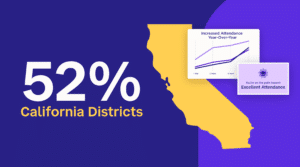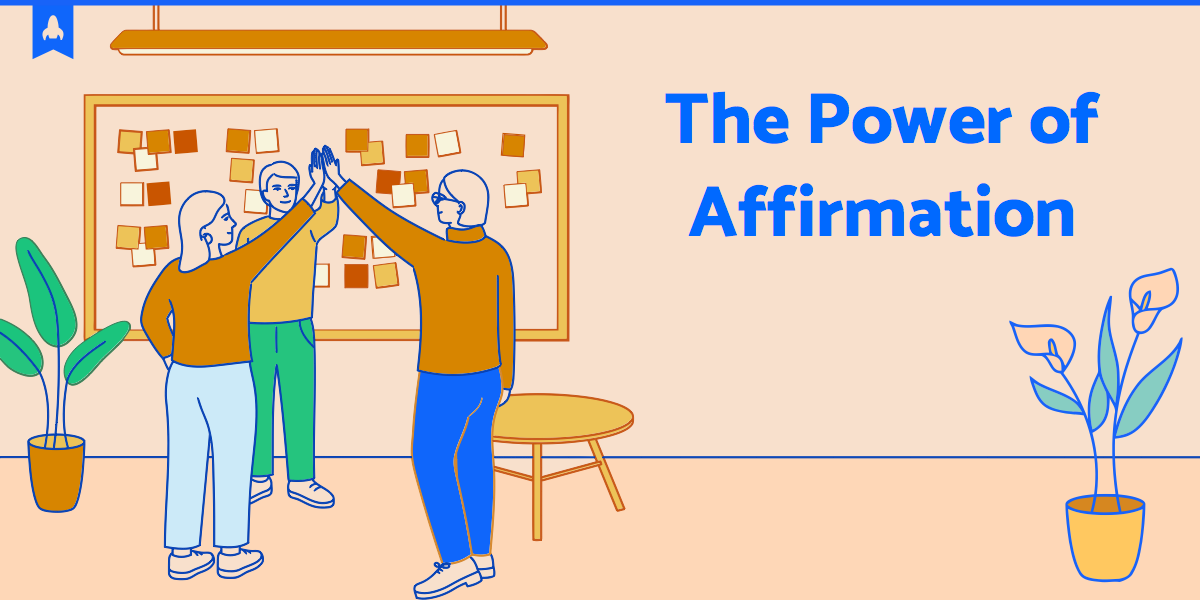
Featured Resource
Why Over Half of California School Districts Trust SchoolStatus
Read More >Join Mission: Attendance to reduce chronic absenteeism in 2025-26! >> Learn How <<





Jenna Moller, instructional coach in Illinois, shares why affirmation is important—both in our personal and professional lives—and how taking a moment to acknowledge others every day fosters strong coaching relationships.
I
n education, we lead with our hearts and our work matters every single day. This profession is tremendously rewarding and challenging at the same time, making it crucial to affirm others in small ways to ensure teachers feel appreciated and connected—and remain in the classroom.
Brené Brown stresses the importance of connection and relationships in her work. You’ve likely heard her TED Talk on vulnerability or read Dare to Lead in the hope of becoming a conscientious leader focused on connection, courage, and empathy. Brown explains that people in highly productive partnerships feel safe to take risks and be vulnerable in front of each other. We can help establish this kind of partnership by offering small affirmations often, building an environment of safety and trust.
In addition, we must recognize the value our colleagues bring everyday and be, as Jim Knight calls it, “a witness to the good.” When we consistently acknowledge the worth, insight, purpose, and energy our staff bring, and how hard they work everyday to do what’s best for kids, teachers will feel seen, heard, and valued and collective teacher efficacy increases.
Collective teacher efficacy—the belief that we can positively impact student learning as a whole—is one of the most powerful tools to increase student achievement1. Giving consistent small affirmations everyday leads to a positive and psychologically safe environment for everybody—teachers and students—because when teachers feel valued and satisfied at work, it trickles down to their classrooms to all of our students.
After every meeting, observation, lunch and learn, and professional development session, I leave an affirmation for each teacher. A few examples of notes I’ve shared in the past are:

I leave these affirmations in mailboxes, on computers, or hand-deliver them depending on the teacher’s schedule. Teachers continue to partner with me with the desire to learn and grow because of the positive relationships built on affirmation.
Leaving a small note to show gratitude only takes a few minutes and has a tremendous impact. With the education field in the state it’s in today—that is, one where teacher turnover rates only continue to rise—it’s important we show gratitude and appreciation to those we work with daily. Now I ask you: how are you going to affirm your colleagues today?
1 Hattie, J. (2010). Visible learning: A synthesis of over 800 meta-analyses relating to achievement. London: Routledge.
Jenna Moller is an instructional coach who loves reading, jazzercise, and pizza. She serves a K-12 district in Harvard, IL, where she works with incredible teachers to create lifelong learners and questioners. Jenna loves her role because she partners one-on-one with staff everyday to build their capacity to maximize student learning. Her previous experience as a high school English teacher, and current work in her doctoral program focused on curriculum and instruction, ensures she remains an advocate for quality curricula designed to provide authentic learning experiences.
Be sure to follow Jenna on Twitter @jenna_moller!
{{cta(‘352a410e-db79-4f33-a482-d301e8041965′,’justifycenter’)}}
 SchoolStatusSchoolStatus connects educators and families around the topics that matter most. The company partners with K–12 districts to improve attendance, engage families, and build trust so students can succeed. A recognized leader in data-driven attendance and family engagement solutions, SchoolStatus enables districts and educators to engage families with relevant, timely communications and proactive support on important topics including absenteeism, literacy progress, and overall student readiness. Today, SchoolStatus supports districts in all 50 states and serves more than 22 million students nationwide as a trusted partner in driving better student outcomes.
SchoolStatusSchoolStatus connects educators and families around the topics that matter most. The company partners with K–12 districts to improve attendance, engage families, and build trust so students can succeed. A recognized leader in data-driven attendance and family engagement solutions, SchoolStatus enables districts and educators to engage families with relevant, timely communications and proactive support on important topics including absenteeism, literacy progress, and overall student readiness. Today, SchoolStatus supports districts in all 50 states and serves more than 22 million students nationwide as a trusted partner in driving better student outcomes.
News, articles, and tips for meeting your district’s goals—delivered to your inbox.






